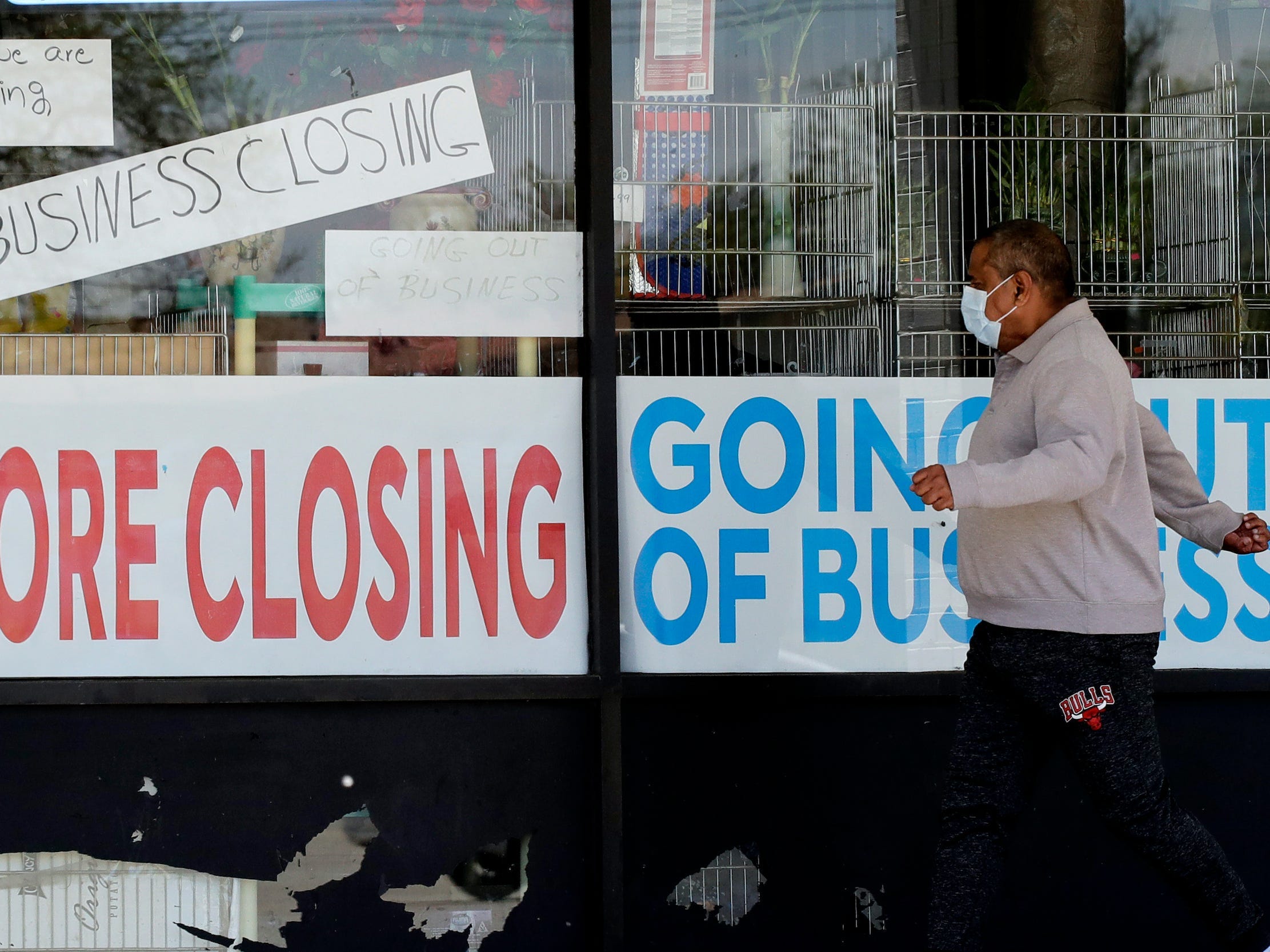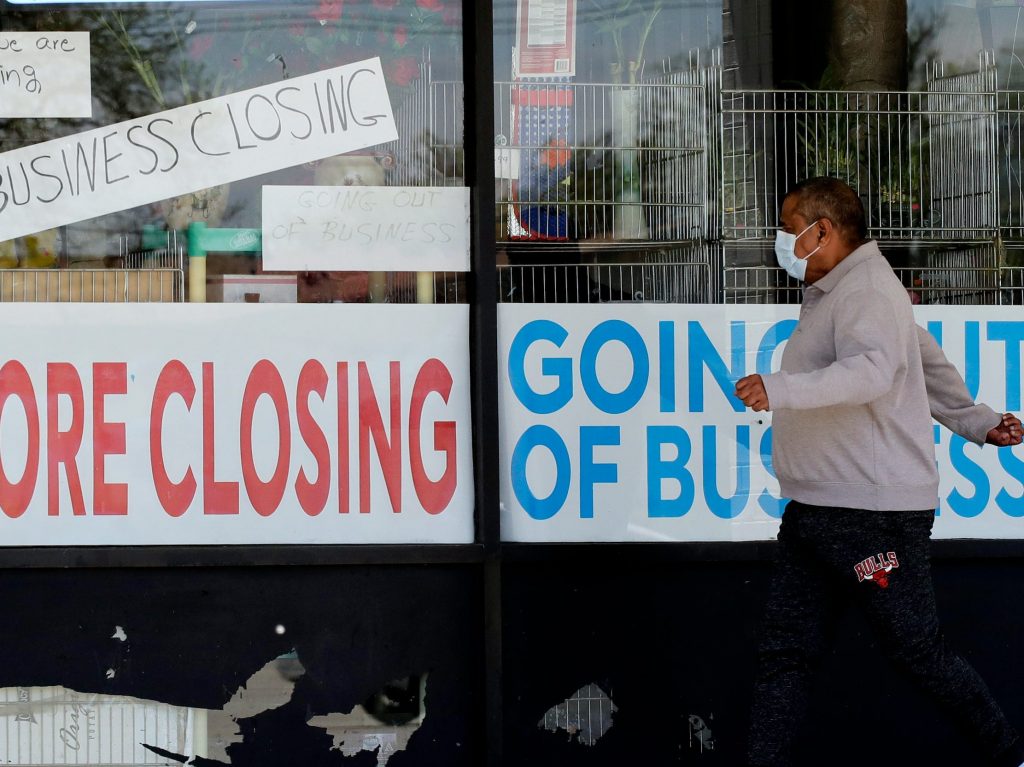
Nam Y. Huh/AP Photo
- The slowing recovery from the Delta variant shows the economy is still very sensitive to the pandemic.
- Inflation is at its highest level in years, and if the Fed raises interest rates, it could crush demand.
- China is still dealing with Evergrande fallout, and a financial crisis in the world's second-largest economy would ripple globally.
The economic recovery from the COVID-19 pandemic has slowed in the face of the Delta variant.
While Americans are still spending more and getting back to work, the slowdown shows the economy is still vulnerable, and a big enough shock could reverse all the gains made in the last year, sending us back into the depths of a recession.
Even though a continued recovery is still likely, three red flags in particular could signal a recession in the next couple years.
A new variant or other disaster could shake consumers and businesses
The rise and fall of the Delta variant showed that the pandemic is still very much with us.
Its surge coincided with both the August and September jobs reports badly missing economists' expectations, and the variant even showed up in a wider-screen number, as third-quarter GDP growth also slowed more than expected.
While cases have dropped in recent weeks, another variant emerging could send consumers back into huddling and businesses shutting down again.
More broadly, the pandemic has shown some major vulnerabilities in supply chains. If another disaster were to hit Gulf coast oil refineries, west coast ports, or Taiwan's semiconductor factories, the already-strained supply chain could weaken even further.
The Fed could tighten too hard and fast in response to inflation
Pent-up demand from last year's lockdowns and ongoing supply chain difficulties have led to inflation hitting its highest level in over a decade. While price increases are in one way a sign of the recovery's strength - American consumers are desperate to buy things - moves to fight heightened inflation could crush that heightened demand.
The Federal Reserve's main tool for fighting inflation is raising interest rates. By making borrowing more expensive, the central bank can cool off an overheating economy by slowing consumer demand and business investment.
But historically, those monetary tightening cycles have often cooled the economy to the point of a recession. Nearly every recession of the last 60 or so years has come after the Fed began raising rates:
The most famous of those Fed-triggered recessions was the "Volcker Shock" of 1980, when then-Fed Chair Paul Volcker raised rates to the historic highs seen in the above chart to crush the stagflation of the late 1970s.
Current Fed Chair Jerome Powell has remained adamant that inflation is likely to be temporary, and that the Fed will continue to accommodate the recovery with low rates, making a repeat of the Volcker Shock unlikely. However, if inflation persists or accelerates further, that could force the Fed's hand.
China and Evergrande could escalate into a full-blown financial crisis
China is going through a massive economic shift, as just part of which President Xi Jinping has been pushing the country's property sector to cut down on its huge amounts of debt.
He was aiming to shrink the risk of a financial crash, but the opposite might be happening. Evergrande, China's second-largest property developer, plunged into a debt crisis in August that only worsened through October. Several other Chinese real-estate firms have failed to meet payment deadlines in recent weeks, and some have fully defaulted on their debt.
The property sector accounts for roughly 30% of the Chinese economy, making Evergrande's repeated comparisons to Lehman Brothers far from a stretch.
China represented over 17% of global gross domestic product in 2020, and its position as the "factory of the world" has made it a critical part of global supply chains. If its expansion slows as dramatically as some expect, global economic growth would take a hit.
Countries that rely on its demand for commodities, investment products, and manufacturers would also face "major spillover effects," Bank of America Research economists said in an October 22 note.
Don't count the recovery out just yet
But despite these red flags, the global economy is still rebounding.
The world is putting the Delta wave in its rearview mirror with global case counts steadily declining since mid-September and now at their lowest since early July. The White House still expects price growth to cool off in 2022, even though it's lingered at decade highs longer than forecasted. And while China's expansion is forecasted to slow, most economists don't expect its economy to shrink.
For now, the global recovery is trucking along. It's been shaken by some road bumps, but it's yet to slide off the road.
